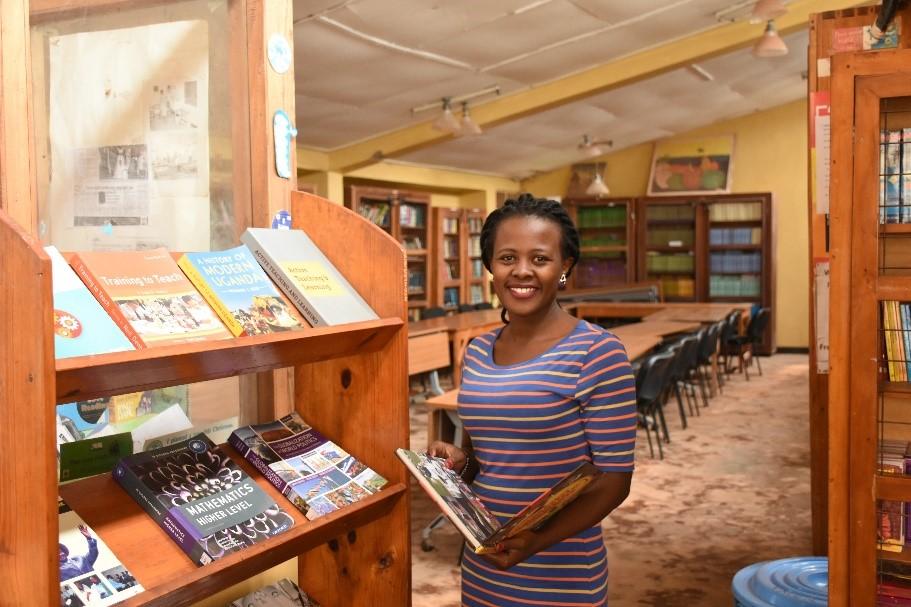NTC Libraries Re-imagined
When you
think of college libraries, you probably picture quaint quiet spaces with
shelves of dusty books, a librarian and students hunched over their reading
material. But this is not the case with the libraries in the National Teachers'
Colleges. NTC libraries are doing much more than you think. They are not only
about books; their real focus is information.
Information
is at the very heart of the education system. This is why so much importance
has been placed on libraries which have quickly developed into the ideal
centres of learning in the colleges. To some, however, these ‘centres of learning'
are frozen in time and struggle to meet the ever-growing numbers and needs of
its users today.
That is
why NTC libraries are leaping into the future by creating engaging
collaborative spaces and incorporating technology to adapt to this digital era.
Susan
Owomugisha, a librarian at National Teachers' College Kabale described her
first impression of the college library as a place that lacked technology and
only had shelves with books and reading spaces. "But today, the library
space is changing," she added. "We have computers and the internet where
we can access books online.
Much of
this has been possible with support from Enabel through the Teacher Training
Education project that is focused on improving the quality of teaching and
learning in the colleges. Through this project, a lot of effort has been made
to transform the libraries so that they meet the various demands of its users
today.
"There
is a need to focus on the library user and understand their needs," she
says. "Something I never really paid attention to in the beginning. But
after going through the online course (Opening the Book), I was able to
understand the importance of the library set up. Things like organizing the
spaces in the library and accommodating different kinds of users."
Information
and Communication Technology (ICT) is another important aspect that has been
incorporated in the NTC libraries. Libraries now have a computer section to
cater for users interested in using the internet. But that is not all,
librarians have been supplied with and trained in the use of a library
management system known as KOHA. This open-source software has simplified their
work in a lot of ways.
According
to Susan, a lot of the work she did as a librarian was manual and time-consuming.
This included registering users, writing stock and preparing reports. "But
now with KOHA, I can generate a report, get statics of users, circulate and
catalogue books which makes my work a lot easier and faster," she said
with a smile.
Along
with the introduction of KOHA, NTCs received a library kit. This is a set of
equipment that included a photocopier, a laminator and a binder. These are
things according to her that have helped the college provide better services to
its library users. Before, a user would have to exit the library to photocopy
pages of a book that they found interesting but now they can easily do so in
the library setting without it consuming much of their time. This equipment has
also supported the libraries by acting as an income generator. Students pay a
minimal fee for services of the binder, laminator and photocopier and this can,
in turn, be used to purchase more equipment to enhance the library.
To top it
all is the construction works at the college. Enabel is supporting the construction
of a bigger and better resource centre that can fully encompass collaborative
library spaces, increased library stock, the integration of ICT (computers and
internet) and provides equipment that not only enhances access to the library
but also improves the comfort library user. This she as she calls it, is ‘the
library of Tomorrow.'
All this
is part of Enabel's efforts to improve access and use of information that can
improve the quality of teaching and learning in the colleges through user-friendly
libraries.
Laatste nieuws van dit project
Geen nieuws

